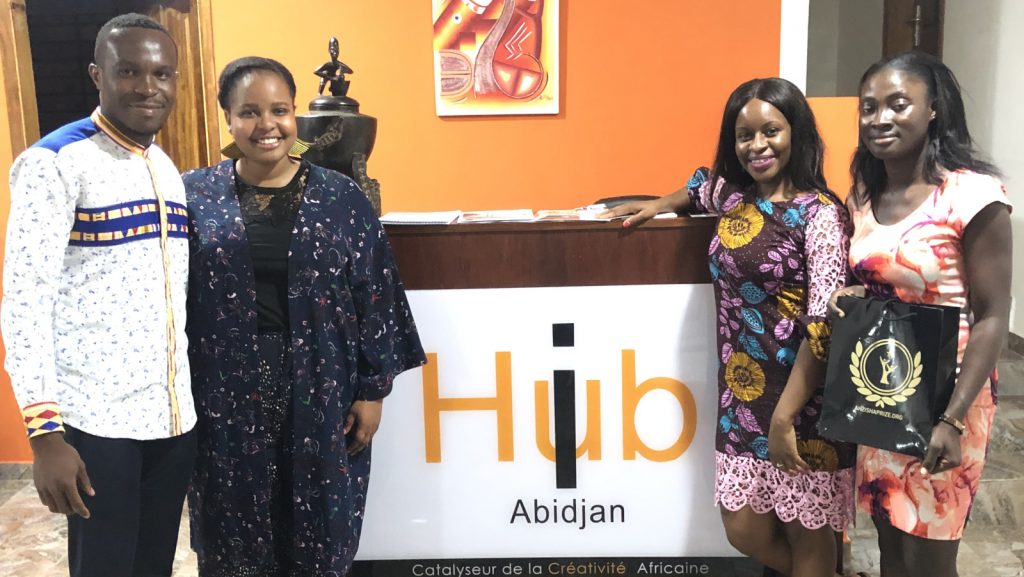We all have them. Those apps we open without thinking. Not because we need anything in particular, but because they feel… safe, in some…
Is Africa’s education curriculum too rigid to support young entrepreneurs?

Is the education curriculum currently in use in schools across Africa too rigid to support aspirant young entrepreneurs?
About 35 participants at an Anzisha Scenario workshop ,which was held last month in Abidjan, Ivory Coast seem to think so.
The event, which was hosted by iHub on 7 October, included educators, incubators who work with young entrepreneurs, non-governmental organisations and a policy maker from the country’s junior parliament (youth parliament).
‘Focus on business skills needed’
Anzisha community and project manager Nolizwe Mhlaba (pictured above, second from right) said the purpose of the event was to continue the conversation around exploring the future of youth entrepreneurship, with a particular focus on what stakeholders can do to create a more enabling environment for very young entrepreneurs (those between 15 and 22 years old).
“We explored the Ivorian context and we were trying to identify the challenges that very young entrepreneurs face in Ivory Coast and from then on brainstorm some opportunities to bring about change or to make it a more supportive environment for young entrepreneurs,” said Mlhaba.
She explained that a lot of participants shared the view that the curriculum is too rigid and that there needs to be more focus on developing the kinds of skills that can help people, whether or not they become entrepreneurs.
These she said include skills such as creativity, critical thinking, while improving learning experiences that can help young people to develop stronger communication skills.
Mentorship needed
The Anzisha team also held another workshop in Dakar, Senegal on 10 October.
“This group was exclusively young entrepreneurs so the format of the workshop was a little bit different — a unique platform to hear from entrepreneurs themselves (about) the challenges they are facing,” she said.
Participants at the workshop, Mhlaba pointed out, also spoke about school and how entrepreneurship is romanticised.
“They raised issues around the misconception of entrepreneurship and some of the perceptions of entrepreneurship that are problematic for them.
“They also spoke about the need for mentorship and also that in schools these soft skills aren’t being focused on enough,” she added.
‘Openness in Francophone Africa’
So, how receptive has Francophone Africa been to the Anzisha Scenario which imagines a future where — in response to the challenge of youth unemployment — young Africans of high potential opt for entrepreneurship as a career?
Mhlaba said there has been an openness across the board.
“And I wonder if it’s because the people who attend these workshops are people who already have an interest in the issue of entrepreneurship, especially as it pertains to youth.
Mhlaba admitted that the turnout at the two events and participation of policy makers and investors wasn’t as big as was hoped, adding that the Anzisha Prize is exploring how to get roleplayers more involved.
This story appeared originally on the Anzisha Prize’s blog on 1 November. See it here.
Featured image, left to right: iHub graphic designer Ralph Kacou, African Leadership Academy communications and stakeholder relations associate Didi Onwu, Anzisha Prize community and project manager Nelizwe Mhlaba, and iHub office manager Salome Ko’bioh (Supplied)
The Anzisha Prize seeks to fundamentally and significantly increase the number of job generative entrepreneurs in Africa, and is a partnership between African Leadership Academy and Mastercard Foundation. Through Ventureburn, they hope to share inspirational and relatable stories of very young (15 to 22 year old) African entrepreneurs and the people that support them. [learn more]


